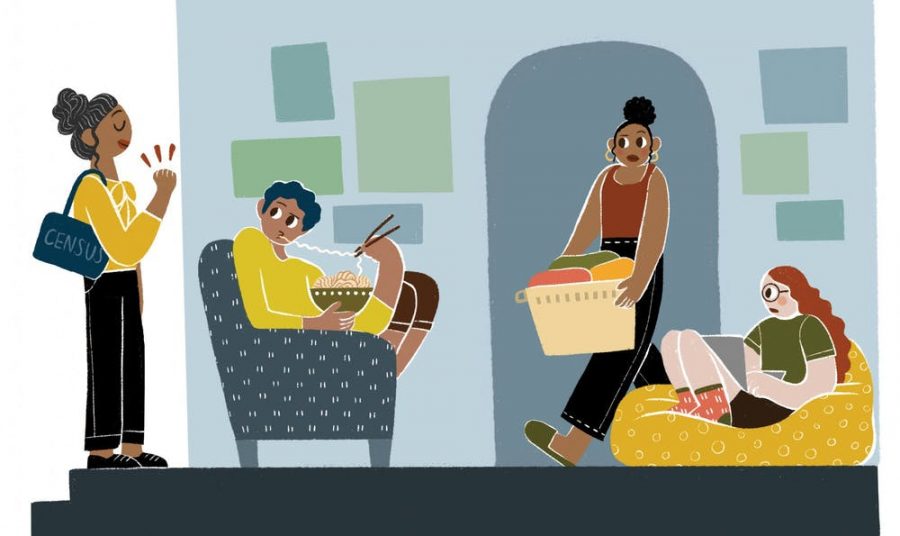The Sept. 30 census deadline is approaching, and experts and community organizers fear an extreme undercount, especially in areas with high student and immigrant populations.
After the nation went into lockdown in spring, the U.S. Census Bureau extended the deadline for counting households during the pandemic. In August, the bureau updated the deadline to Sept. 30, cutting short time for door knocking and nonresponse follow-up by a month. Areas around the University of Minnesota have responded at a much lower rate than the rest of the city.
The shrinking window of time is made worse by the pandemic’s effects — limiting in-person contact — and traditional struggles of counting college and immigrant neighborhoods.
“Student communities are one of my greatest concerns for the 2020 census,” said Susan Brower, state demographer.
Three census tracts in University of Minnesota neighborhoods — Cedar-Riverside, the Dinkytown side of Marcy-Holmes and the University neighborhood itself — are currently underreported by more than 50% of households, according to data updated Sept. 14 by the University’s Center for Urban and Regional Affairs. Only one other Minneapolis census tract, a section of Ventura Village, is currently reporting at such a low rate.
The census bureau first sent out information just before spring break, when the state went on lockdown and many students returned to their hometowns, leaving census notices unopened in their mailboxes.
“The fear now is, ‘Did they get counted at all, and did they get counted in the right place?’” said Andrew Virden, the state’s director of census operations and engagement. “You should be counted where you would have lived if it wasn’t for COVID-19.”
The census determines political representation and community funding, which affects everything from government programming to business decisions.
“It makes a difference for you if you’re a college student working off campus,” Virden said. “Whether or not you or a student like you had been counted in the past might determine how long you have to wait for a bus or how far away you have to go to get a good-paying job.”
Ahmed Mussa, community health coordinator for the Brian Coyle Center, said Cedar-Riverside has been historically undercounted. He got involved to reduce the chance of that happening again.
“The library, hospital, schools, daycares and senior resources are all affected if we don’t count everybody,” Mussa said. “A lot of our East African community lives in apartment complexes and some live in low-income housing, and that will go away if we don’t get enough people counted.”
Mussa’s volunteer work centers around recruiting and working with other volunteers who are trusted and familiar within the community.
“A lot of enumerators coming to the buildings are not familiar faces, and the folks who live in the buildings have a language barrier,” Mussa said, explaining that residents do not let the enumerators in. He added that some people do not understand the process of how they are counted.
Regardless of their tireless efforts, he said the deadline is coming up too quickly.
“If it was at the end of October, it would be easier,” said Mussa, mentioning that there would be more time to advertise on social media and in front of the mosque, church and other popular locales.
The census can be completed on the census website, by calling 844-330-2020 or by mail. In-person assistance is offered at the Brian Coyle Center and at the University’s Magrath, Wilson and Walter libraries.



















